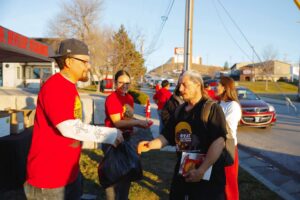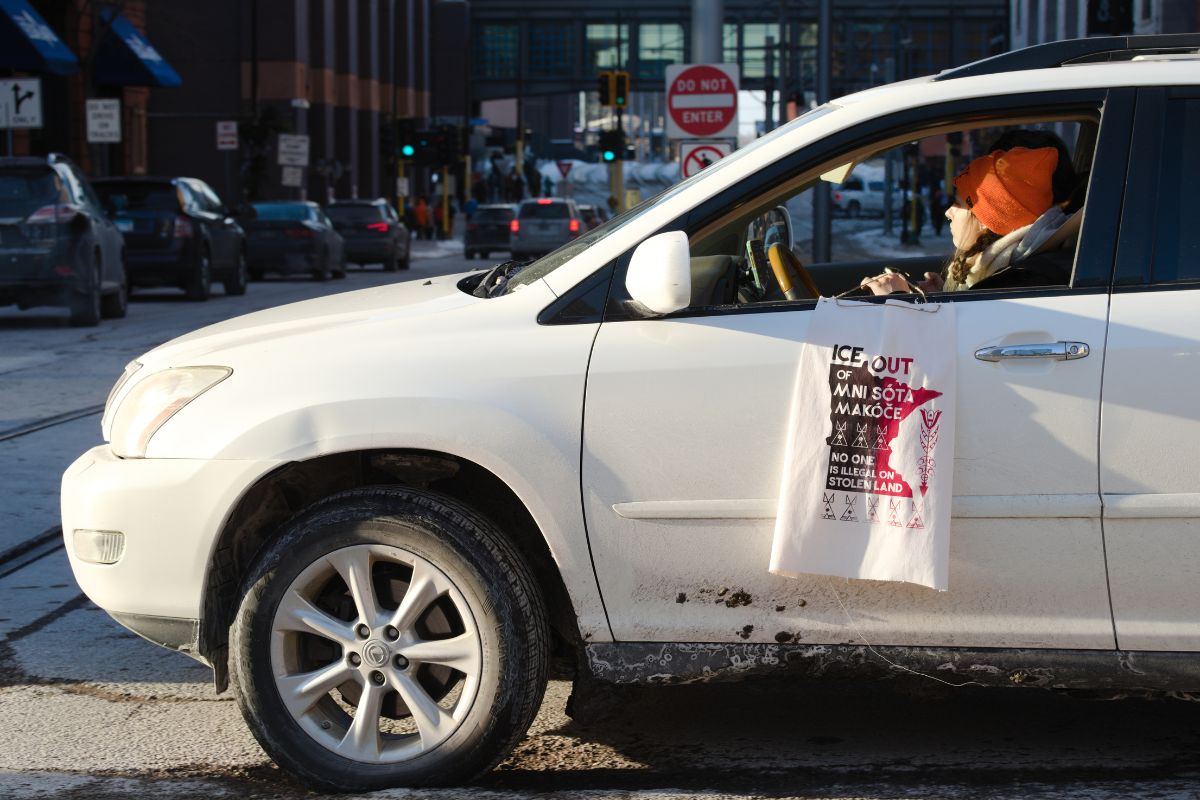
November 24, 2019; CNN
In Plymouth, Massachusetts, at a dinner held in 1970 to mark the 350th anniversary of the Mayflower landing, a leader of the Wampanoag, the Native nation that had feasted with the Pilgrims, drafted a speech to deliver at the gathering.
In the prepared remarks by Wamsutta Frank James, the Aquinnah Wampanoag leader planned to read the following sentence: “The Pilgrims had hardly explored the shores of Cape Cod for four days before they had robbed the graves of my ancestors and stolen their corn and beans.” But the line was never uttered, as event organizers refused to allow it.
Wamsutta was asked to rewrite the speech, but he refused. “So, he withdrew,” Tall Oak, a fellow Wampanoag tribal member, informs Pamela Kirkland of CNN. Instead, that year, Tall Oak and his fellow Wampanoag created a National Day of Mourning, which, like Thanksgiving, occurs the fourth Thursday of November.
As Kirkland explains, “Now in its 50th year, the custom involves a few hundred Native Americans and nonnative people gathering on Cole’s Hill, overlooking Plymouth Rock, to consider Thanksgiving from the perspective of Native Americans.”
Sign up for our free newsletters
Subscribe to NPQ's newsletters to have our top stories delivered directly to your inbox.
By signing up, you agree to our privacy policy and terms of use, and to receive messages from NPQ and our partners.
Kirkland points out that a plaque at the site reads, “Thanksgiving Day is a reminder of the genocide of millions of their people, the theft of their lands, and the relentless assault on their cultures. Participants in National Day of Mourning honor Native ancestors and the struggles of Native peoples to survive today.”
“We go there every year, along with many nonindigenous allies, as well, to talk about the truth about Thanksgiving,” Mahtowin Munro, co-leader of the United American Indians of New England, tells Kirkland. “We still have to retell the story because it’s still not known well enough. But I do think that more and more, nonnative people are listening and learning and are interested in the truth about what has happened.”
Cedric Cromwell, now the chairman of the Wampanoag nation, notes, “There’s this whole Norman Rockwell fantasy of what Thanksgiving was about, that it was this huge celebration between the first settlers and the tribes that sat down and talked, and that really wasn’t the case.”
The actual story of the First Thanksgiving is a little bit more complicated and involves the defusing of what initially threatened to become a live conflict. As Cromwell explains, “In reality, the Pilgrims were preparing to attack. We sent 90 men over to the first settlers to see why they were shooting guns and practicing arms to say, ‘Hey, what are you preparing for?’ And they were preparing for some kind of war to take our people down. So, we sat down with them to have a discussion, and (that) led (to) a feast.”
Meanwhile, Cromwell notes that the Wampanoag still are struggling over sovereignty and land rights established in the 1770s. Recently, Cromwell explains, the Trump administration reversed an Obama-era recognition of the Wampanoag’s tribal land trust. As a result, the use and taxation of more than 300 acres of land remains in dispute.—Steve Dubb












